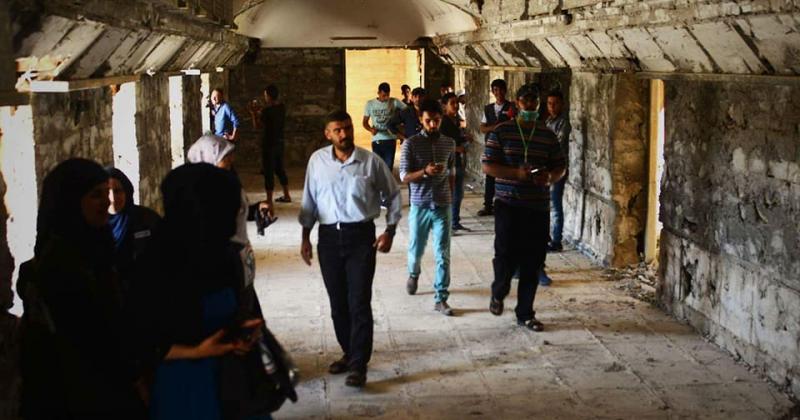The “noble” actions of those who believe in dialogue and negotiation.
In an age when many, at different levels, consider the terms “dialogue” and “diplomacy” as equivalent to do-goodery and feeble compliance, when they are not believed to be as effective as swear words, the message the Americas have sent out with the thaw in US-Cuna relations is a significant one.
In his audience with thirteen new ambassadors to the Holy See who presented their Credential Letters yesterday, Francis spoke of diplomacy as work that is carried out “in small steps”, bringing people together and spreading fraternity and peace. Speaking off the cuff, the Pope said: “I greet you and wish your work to be fruitful, to be fertile. The work of an ambassador lies in small steps, small things, but they always end up making peace, bringing closer the hearts of people, sowing brotherhood among peoples. This is your job, but with little things, tiny things. Today we are all happy because we have seen how two peoples, distanced for so many years, made a step nearer one another yesterday. That was brought about by ambassadors, by diplomacy. Your job is noble work, very noble.”
The public recognition the Pope received both from Barack Obama and Raúl Castro when they announced the thaw in relations between the United States and Cuba triggered many different reactions. Some placed a strong emphasis on the importance of Francis’ role, while others wrote that Bergoglio only played a minor role because Wednesday’s events were in fact the result of a process that had begun a long time ago.
Some observations can be made without the risk of placing too much emphasis or playing down any particular aspect, but trying to apply Francis’ “small step” philosophy. These observations are made using measured words as the Vatican Secretary of State, Pietro Parolin did in his interview with Vatican Radio. The first regards Vatican diplomacy taking centre stage again on the international scene. This return to the spotlight is not purely a media thing and it is not fleeting: although it is true that the Secretariat of State gave public confirmation of the role played by the Holy See, it is also true that negotiations went ahead with the utmost confidentiality, without indiscretions being leaked. It was a resumption of relations.
“Time is greater than space,” one of Francis favourite sayings goes. Francis follows in the footsteps of his predecessors, defending a culture of dialogue and encounter. Another observations is this: the resumption of relations is undeniably partly down to the contribution of the Pope “from the other side of the world”: Both friends and heads of State traditionally close to the Holy See as well as individuals who are less close to it, recognise the Bishop of Rome’s credibility and personal testimony.
The third observation is in relation to the low-profile but important role played by the Vatican Secretary of State, Pietro Parolin. As Apostolic Nuncio to Venezuela, he got to know the problems affecting the region and he is currently handling the Holy See’s delicate relationship with China. Then there are the tragic circumstances currently affecting the Middle East. Interestingly, there are currently diplomats who occupy key positions in the Secretariat of State and have connections with Cuba. The Substitute of the Secretariat of State, Angelo Becciu, was previously Nuncio to the Caribbean island, while Dominique Mamberti, who was recently nominated Prefect of the Apostolic Signatura, visited Cuba when he was the Vatican’s “minister of foreign affairs”.
John Paul II and Benedict XVI’s visits certainly helped move the process forward. The process was guided by the Cuban Episcopate, primarily by Cardinal Ortega y Alamino, as well as by the US Episcopate. So the sign of hope contained in Obama and Castro’s announcements – naturally the merit for this goes mainly to the two leaders – is the fruit of a process that saw the Catholic Church engaged in efforts to facilitate dialogue between the two sides, dialogue between communities and the end to an embargo which weighs on the population.
Of course, in a world that is the theatre of a “piecemeal World War III”, to use another of Francis’ favourite phrases, in a world of conflicts driven by religion and fundamentalism, there are other situations that are far more frightening due to the tragic, far-reaching effects of the horrors involved and the apparent impossibility of reaching a negotiated solution. The Pope and the Holy See as a whole become the targets of Eastern and Western fundamentalists, of those who firmly believe in religious wars, of those who want an Armageddon between Western “crusaders” and Islam. The patient efforts made taking “small steps”, in an attempt to find feasible ways of stabilising a situation seem to be utopias. The Holy See sometimes finds itself isolated as a result of its relentless calls for multilateral diplomacy, calling for solutions that are shared by the United Nations, even when this is necessary in order to “stop the unjust aggressor”.
“More dialogue is needed, not less,” Francis and his collaborators keep on stressing, conscious that their voice is often faint and certainly powerless against the powers and powerful of this world. It is a voice that interested solely in saving human lives, promoting peace and alleviating the suffering of civilians. It is a voice that has never to this day sought praise and has no interest in planting flags.
